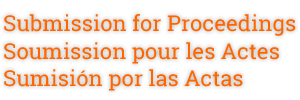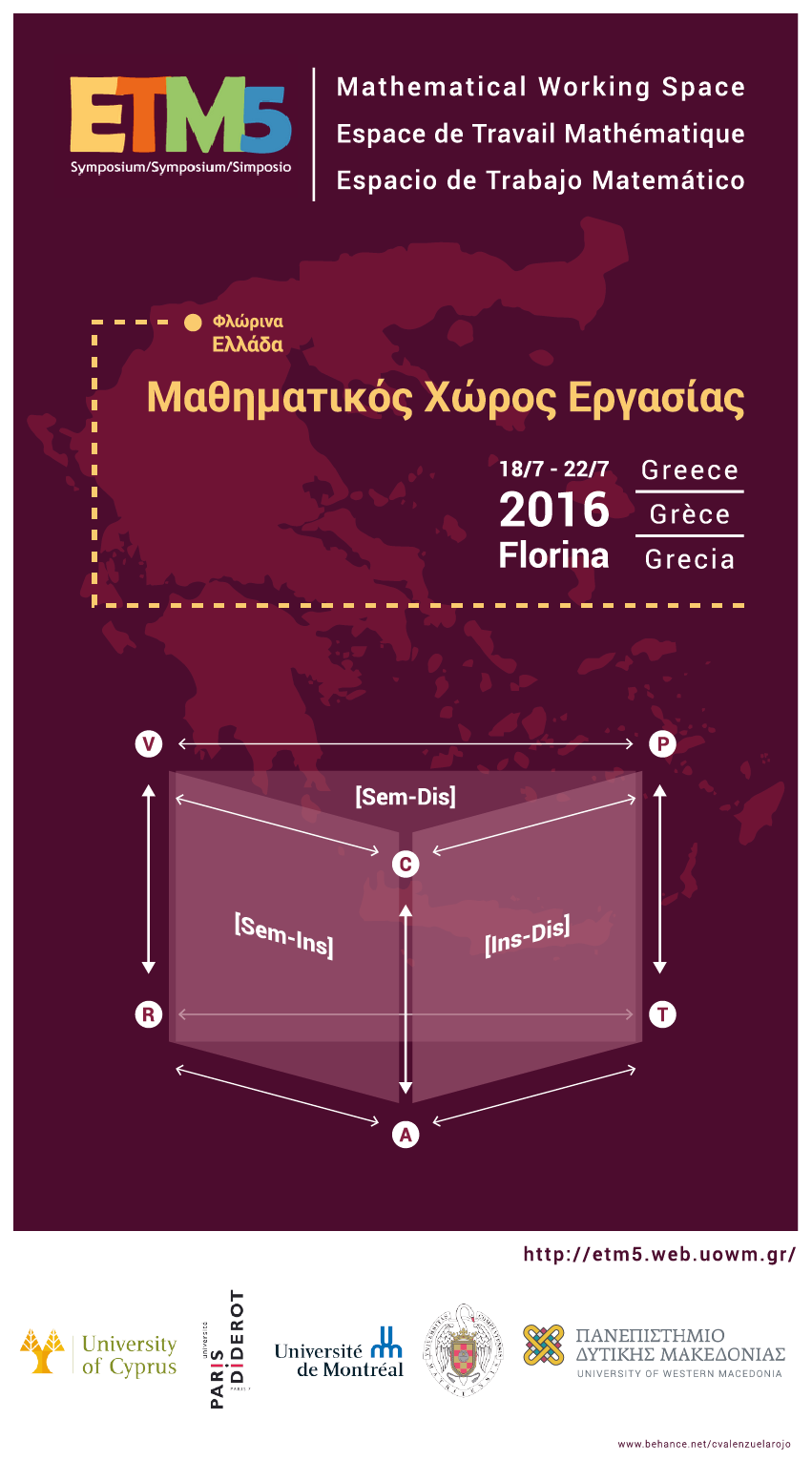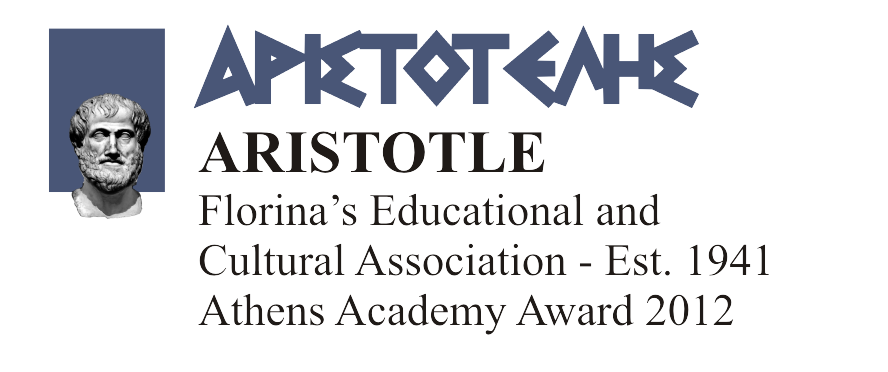ETM meetings are organized into working groups based on the contributions proposed by participants. The form of the Symposium allows an interesting exchange of ideas amongst participants and encourages the development of a scientific community with common interests. ETM meetings have an international dimension (Canada, Chile, Cyprus, France, Greece, Mexico, Switzerland, etc.) and a multilingual participation (English, Spanish, French).
The first two meetings were initially dedicated to the study, development and possible uses of the concept of Mathematical Working Spaces (ETM, Espace de Travail Mathématique, in French) in mathematics education. Within ETM3 and ETM4, the focus was on the foundational component of these meetings: the mathematical work. This evolution has deepened and diversified the approaches to the subject. In particular, the semiotic, cognitive and instrumental dimensions, as elements of the MWS, were the subject of specific contributions. Similarly, the institutional and social dimensions of mathematical work are now integrated in all three working topics.
General overview of the fifth MWS Symposium
Following ETM4, one of the main objectives of the fifth ETM meeting is to strengthen the community of education researchers interested in MWS. The development of the MWS model as a methodological and a theoretical framework remains a central concern, including also the study of its effective uses to various areas of research in mathematics education.
Organization of the Symposium
The Symposium will last five days and is trilingual (English, Spanish, French) as in the previous ETM meetings. Each oral presentation will be done in one of these three languages and based on a slideshow written in one of the other two languages of the symposium.
The number of participants is limited to 60 and the duration of the event should allow each participant to consider all the themes (the committees will be careful to balance the themes evenly).
The meeting will be organized around three main topics and each contribution should deal with one of these topics. Each theme of the conference will be introduced by a plenary presentation recalling, in particular, the achievements of previous symposia.
Topic 1 – The mathematical work and Mathematical Work Spaces
Topic 2 – Specific tools and signs in the mathematical work
Topic 3 – Genesis and development of mathematical work: the role of teacher, trainer and interactions









